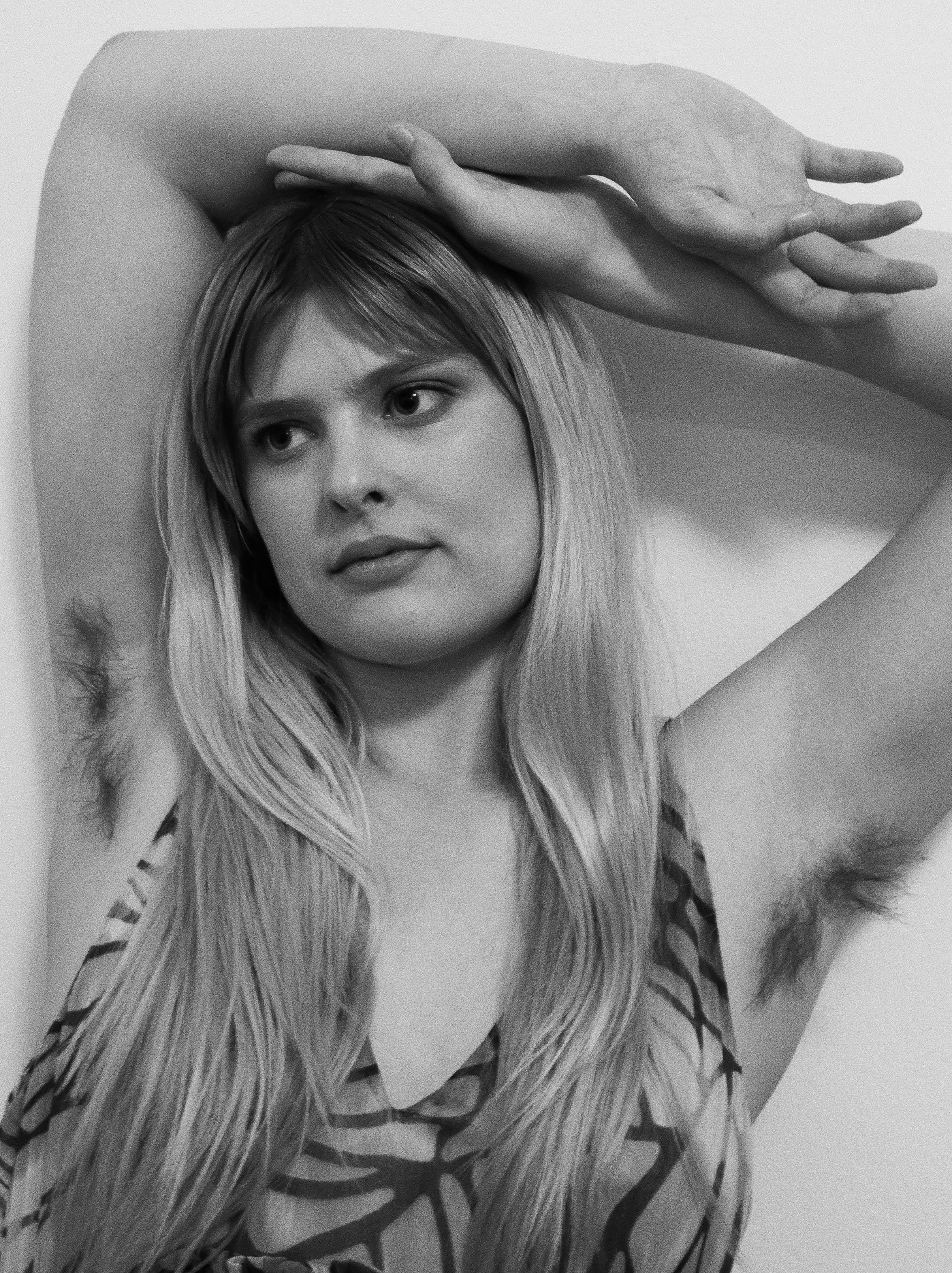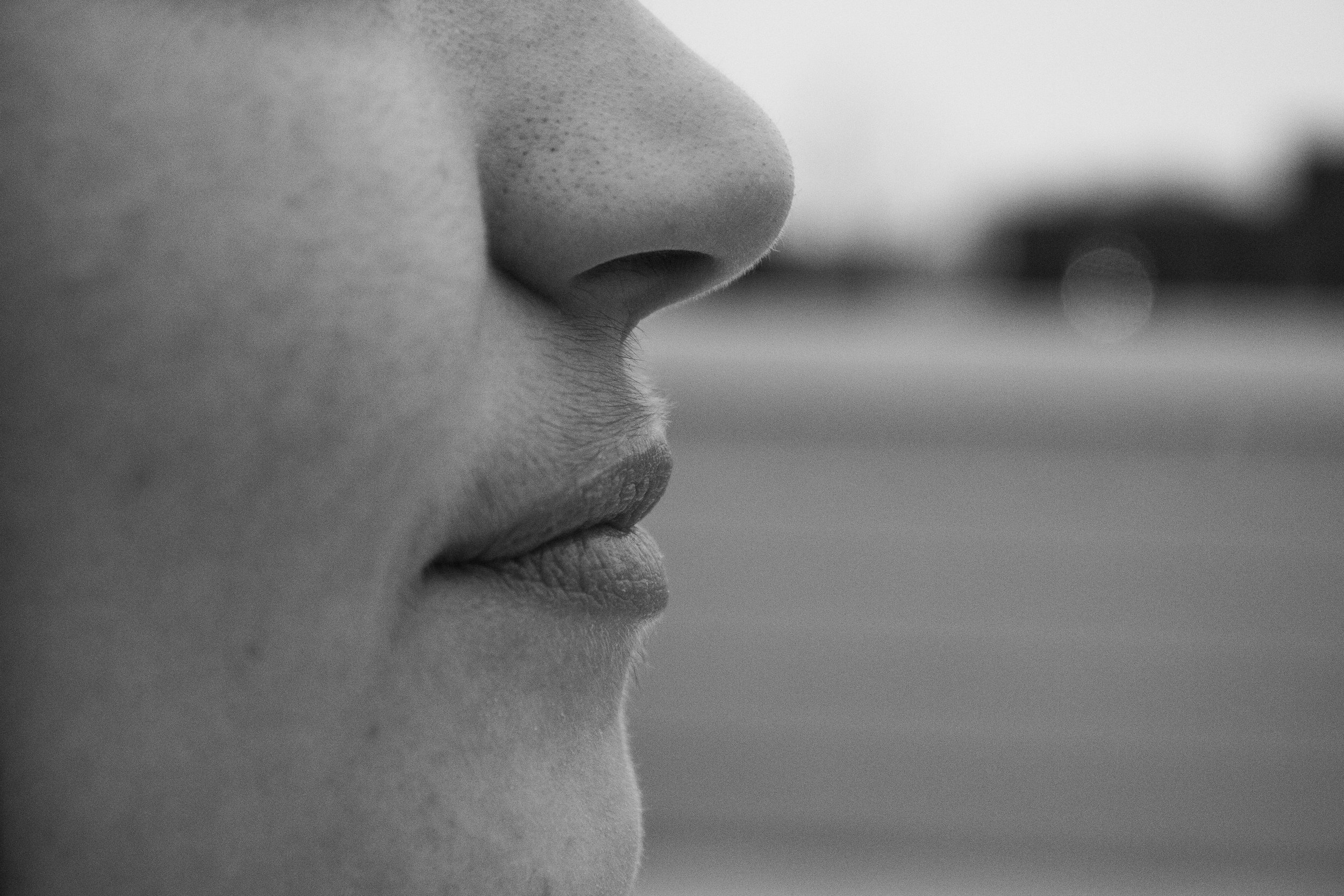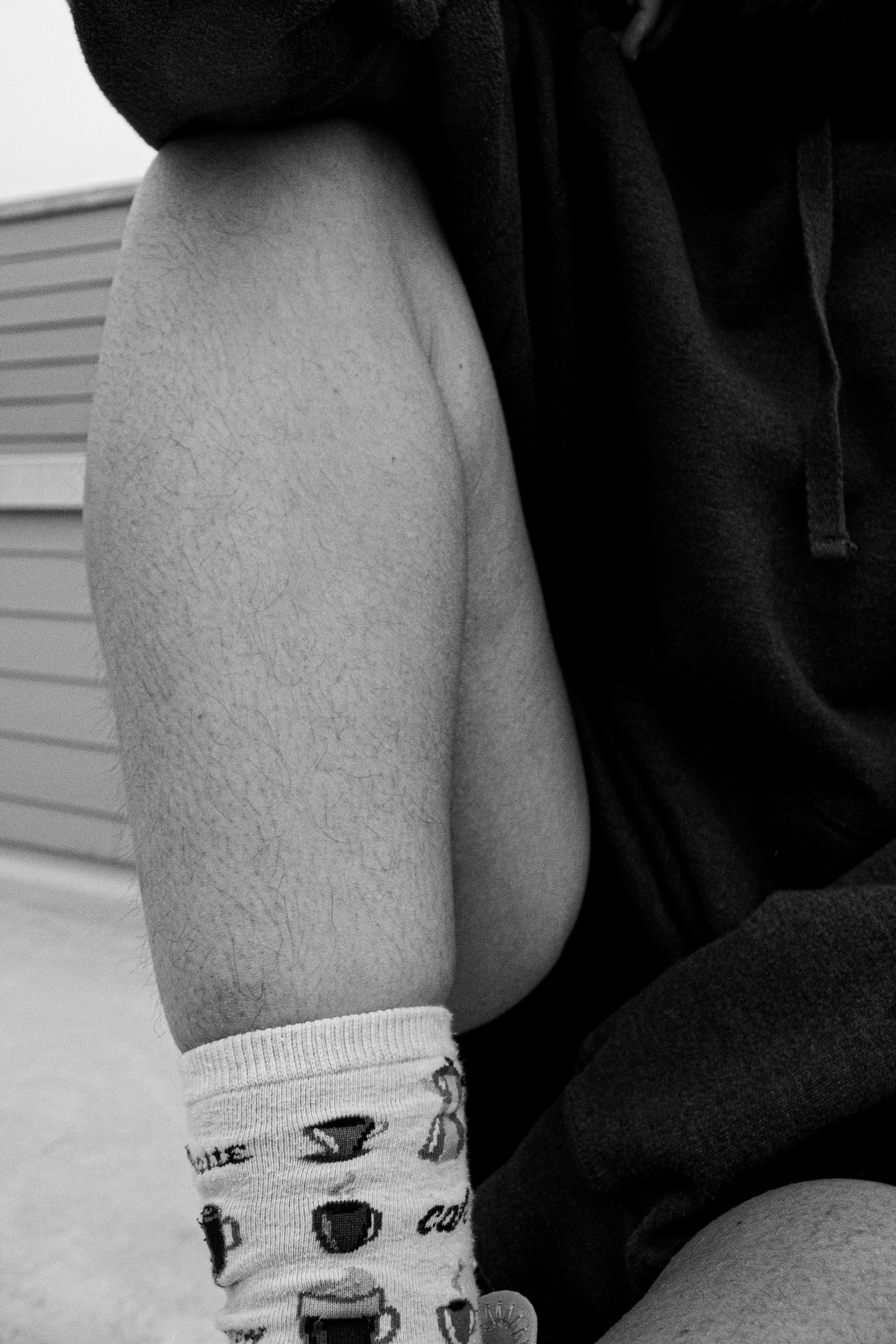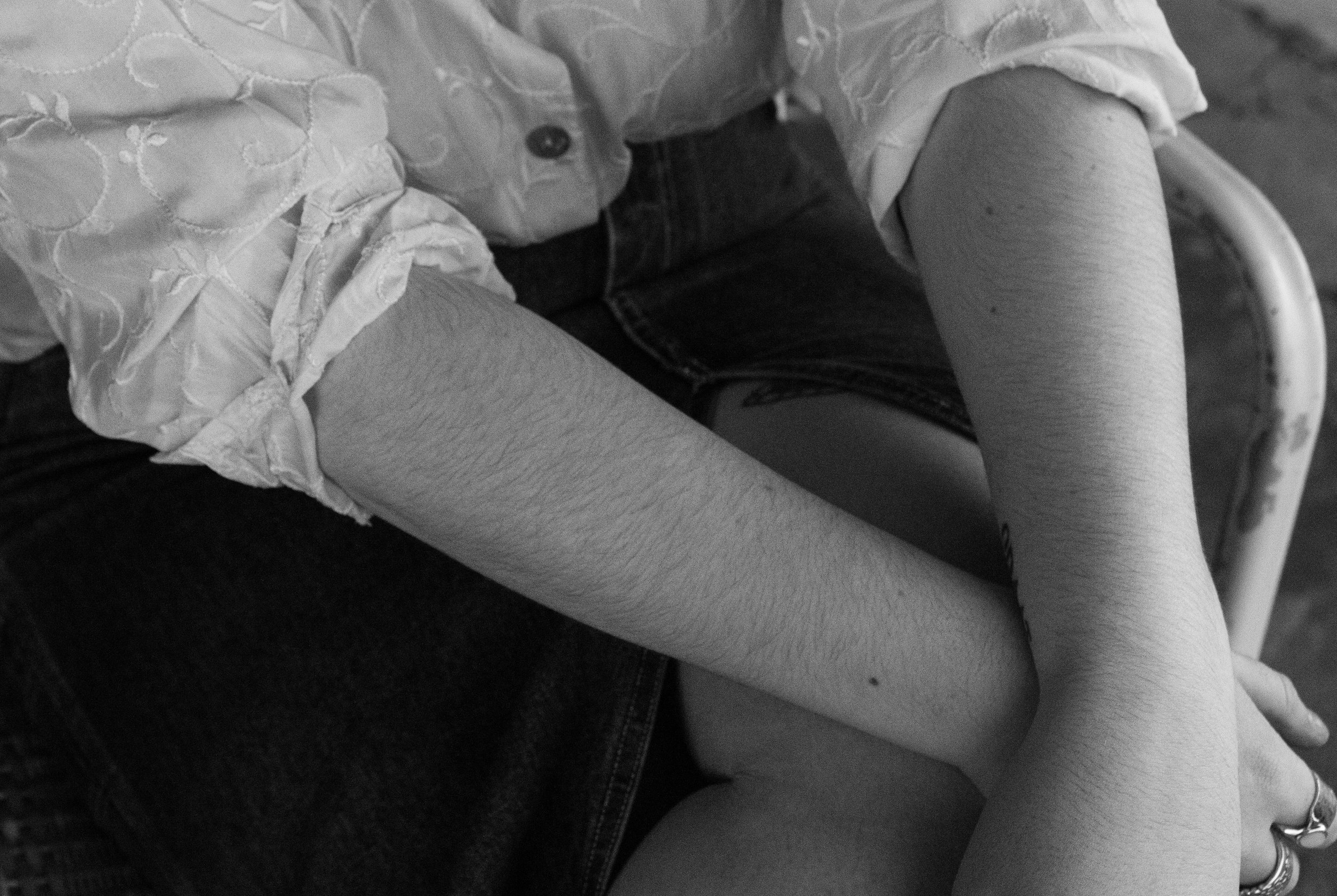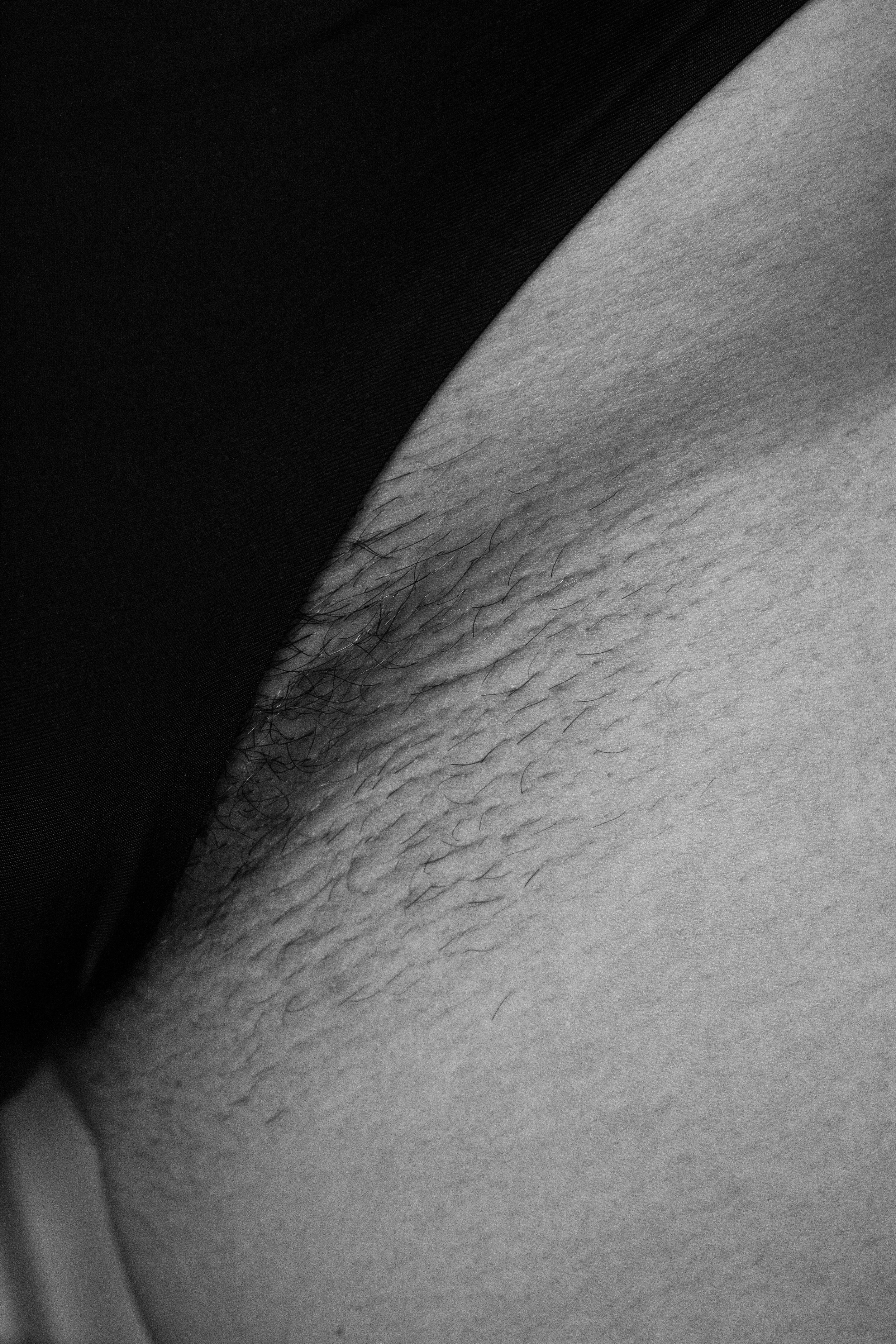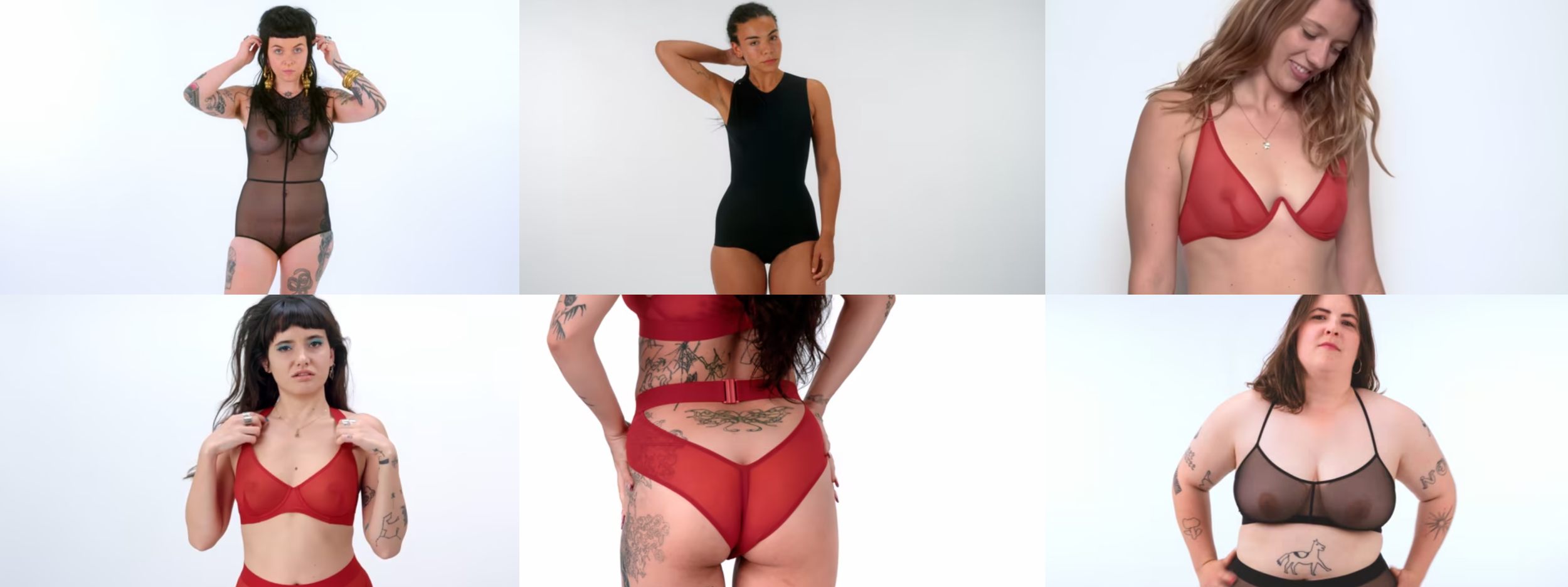To Shave or Not to Shave
Written and Photographed by: Jayna Cabry
For 100 years, women have been encouraged to shave their body hair through advertisements, clothing brands, and social media influencers. Have you considered this beauty standard’s implications on yourself and the women around you?
When I was seven, my dark-haired Irish father applied Nair on my legs so I wouldn’t get picked on at school. As a kid, it became ingrained in me that body hair was unacceptable. I remember watching popular male YouTubers’ videos on their preference for women and their opinion on body hair was that it was “disgusting” and “dirty”. Thousands of impressionable young girls, including myself, watched that video and immediately shaved their arms. I was ten, begging my parents to let me use a razor so boys would like me. In high school, I asked my friend to wax my arms after receiving negative comments from classmates. I got through two waxing strips and couldn’t endure the pain any longer, so I stopped and swore never to touch my arm hair again.
This topic has provoked so many questions for me as I get older. Why do a lot of women think this way? Body hair on women or feminine presenting people has little to no media representation, even after all our progress with gender expression and sexuality. In our society, women MUST have hair on their heads and eyebrows but be completely bald everywhere else. Why was this standard placed on women and not men? When did hair become a masculine trait?
As the 20th century began, women didn’t care if they had leg or underarm hair, which shows in the era’s beauty guides, ads, and fashion. Clothes were so concealing that it was rare to see bare legs or underarms, so removing hair wasn’t an issue, says Phil Edwards from Vox. Once the hemlines rose in the 20s, women’s legs became exposed, and shaving companies began to target women’s leg hair. Advertisements in the 40s and 50s created an expectation for all women to have bare legs, armpits, and even arms. Body hair on women was seen as dirty and gross, while on men, it was what made them more masculine and sexy. Not only were smooth bodies a symbol of femininity, but they also determined status and class in the early 1900s. Most current beauty standards and gender conformities that stuck with our society developed throughout the 1900s. In the 2000s, younger generations fought to remove those standards and expectations, yet there is still much work to do regarding body hair.
Lingerie brands are one prominent example of how this standard sustains itself today. While many lingerie brands are expanding their sizing and diversity, it is rare to see a woman advertised with body hair. I recently discovered the lingerie brand La Fille d’O, embracing women and nonbinary individuals with body hair. The website’s about section includes a quote from the brand owner stating,
“as a woman, I felt unheimlich when looking at ‘modern’ lingerie and women in media who were presented to me as role models. This image of the woman felt very out of date and uninteresting for such an innovative business. I myself find true inspiration, one that satisfies my hunger, with the people surrounding me.”
La Fille d’O Lingerie’s approach to showing off women’s bodies with body hair and nipples in their ads is necessary to normalize natural bodies and help others feel comfortable and confident.
While I understand the contradiction of marketing razors to women while encouraging them to embrace their body hair, Billie, a women’s razor company, does just that. “Project Body Hair” is Billie’s celebration of body hair, stating,
“For the past 100 years, women’s razor brands haven’t acknowledged female body hair. Commercials show women “shaving” perfectly smooth, airbrushed legs. Strange, huh? But everyone has short stubble, long strands, or something in between. What you do with yours is up to you - grow it, get rid of it, or comb it. It’s your hair, after all.”
Billie was the first razor brand to give women a choice. Instead of promoting a silky smooth body, Billie encourages women to do what they want with their body hair.
When speaking to women around me, most have felt pressures to shave from society, to look “cleaner,” or feel sexier. Some women say they like the feeling of being smooth. Many women stop shaving frequently or at all once they are in a committed relationship, demonstrating the initial attraction of hair-less women.
Some women I spoke to find feminine power in their body hair and do not accept judgment from others as a motivator. Jessie Falasco, a recent Drexel graduate states,
“As a pansexual woman, male validation and body hair have always been complex topics for me. The idea of shaving my body was engrained into my mind since I was a young child in order to be viewed as attractive by men. Since growing up, I have matured into someone who loves my body because it can do so many amazing things. I no longer let the male gaze affect my decisions since I grew into and fully accepted my queer identity. Nowadays, I decide what I want to shave without consideration for anyone else...”
Honestly, I struggle to understand the mindset that women are shaving only for themselves. After my experiences with judgment and absorbing toxic media, I find myself shaving purely to avoid other people’s judgment or because it has been ingrained in my mind that too much hair is gross or dirty. As someone who uses she/they pronouns, accepting my non-binary side has helped me to grow more comfortable with my body hair, but it has not removed the stigma.
Jessie continues “...I love shaving my arms because I enjoy how it makes my tattoos look. At the same time, I love having a bush and letting it grow long. It makes me feel sexy! It’s funny because sometimes I am completely shaved from head to toe because I like how smooth it makes my skin feel, while other times I go for weeks at a time without touching a razor to body. It’s empowering to know that it is my decision to shave or not shave my body based on what makes me happy at that exact moment.”
Through speaking with different women, everyone seems to have a complicated journey with their body hair. Ginny Granato, a Drexel graduate student states,
“I have a complicated relationship with my body hair. On one hand, I love the freedom of just existing as I am. I love not having to worry about buying razors or making waxing appointments. There are so many body modifications that are sold to us as just being ‘a part of performing womanhood’ that it feels good to let one go. I also can’t deny that I love feeling a sense of empowerment from it, like I’m taking some of my power back as a woman by not following every single standard. On the other hand, there is always a part of me that carries a weight. I don’t know if it’s entirely shame or maybe it’s fear, but when you go without shaving and you lift up your arms in front of someone, it feels like some grand act...”
Two summers ago was the first time I ever truly embraced my armpit hair and let it grow out to its full potential. I received backlash from family and friends, either a disgusted facial expression or even some “eww”’s. There were times when I thought I felt confident and empowered in my body hair, and then I went out in public and felt like there were constant eyes on me, like I was doing something wrong, even if no one was around.
Ginny continues “...Even my parents had an intervention with me about my body hair stating concern for my “hygiene” (I’ve been growing out the hair on my head for years with no such upset, why is this different?). It hurts to think that just existing in my natural state is an act of rebellion that is judged in one way or another. I obviously don’t want to feel shamed for it but ultimately I don’t want to feel congratulated for it either (I mean as a thin white woman I’m not exactly breaking down barriers by having a bit of pit hair). I just want to be…and for other people to mind their own business.”
As a society, we are moving in the right direction by accepting women with body hair. Regardless of how each woman thinks of their own experience with shaving, it truly is an individual’s preference whether to shave or not. I encourage you to become more aware of your stance on women’s body hair and the ads and social media we absorb. What are these brands and influencers communicating to their audiences? Ask yourselves what they could do better to shift the narrative surrounding sexuality and body hair.

